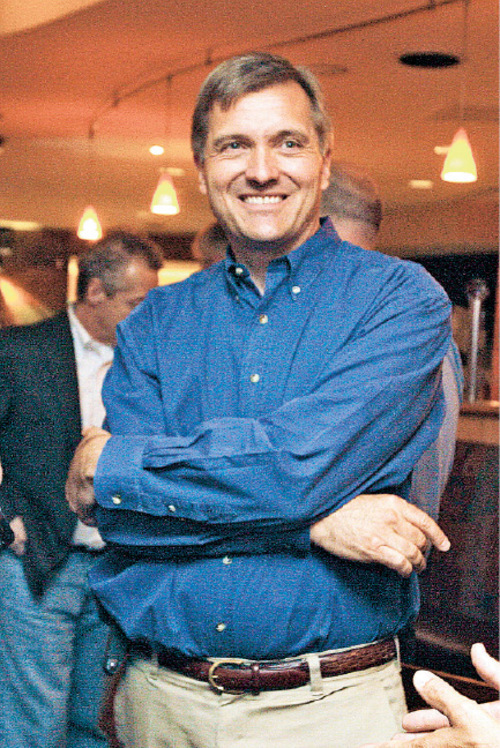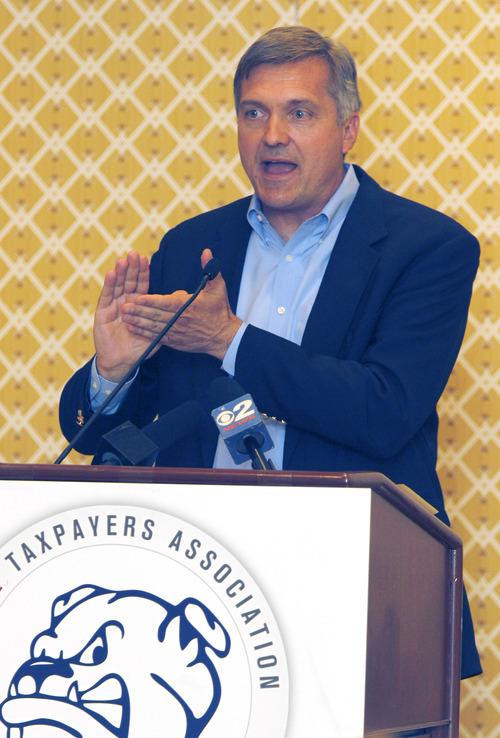This is an archived article that was published on sltrib.com in 2012, and information in the article may be outdated. It is provided only for personal research purposes and may not be reprinted.
U.S. Rep. Jim Matheson said Monday that he would vote for a temporary extension of the Bush-era tax cuts before they expire at year's end.
"I'm going to vote to extend them," the Utah Democrat said. "In a tough economy, you want to be careful about significantly reducing spending or increasing taxes."
Matheson's position puts him at odds with President Barack Obama. The White House wants to lengthen the tax cuts for individual Americans making less than $200,000 a year and families making less than $250,000, but has rejected proposals to extend them for the top 2 percent of earners.
Mia Love, the mayor of Saratoga Springs and Matheson's Republican opponent in the November election, also wants to continue the Bush tax cuts — forever.
"I support making the Bush tax cuts permanent," Love said in a statement. "The federal government has a spending problem, not a revenue problem. Utahns are doing everything they can to tighten their belts and live within their means. Is it too much to ask for Washington to do the same?"
Former President Bill Clinton said last week that the tax cuts should be extended until early 2013 because he didn't believe Congress would agree to a long-term budget deal before year's end.
Likewise, Matheson said Monday during a meeting with The Salt Lake Tribune editorial board, that he would like to see comprehensive tax reform. But he conceded that is unlikely to happen in an election year, so he favors the temporary extension.
The Bush tax cuts, passed during President George W. Bush's first term in 2001 and 2003, were extended in 2010 as part of a larger deal between Congress and the White House.
If the tax cuts expire, the federal government would collect an additional $829 billion between 2013 and 2022, according to the Center on Budget and Policy Priorities, a progressive tax think tank.
Matheson said that it is also essential to get health care spending under control to put the country on a sustainable financial path. He said the Patient Protection and Affordable Care Act, the federal health reform passed by Congress, didn't address the factors driving higher health costs.
He voted against repealing the Affordable Care Act because he said it had good elements, such as giving insurance access to people with pre-existing conditions, allowing individuals up to age 26 to stay on their parents' insurance and granting immunizations without office co-payments.
"I'm not going to take those rights away form people," Matheson said.
Too many procedures aren't medically necessary, he added, but are ordered by doctors anyway because "there are a lot of perverse incentives in the health care system."
He said the system is also administratively inefficient, driving up costs.
With federal health care spending consuming major portions of the budget and projected to grow, Matheson said, the issue needs to be addressed.
"We can talk deficit issues all we want about things that need to be done," he said, "but if you don't address health care, it doesn't matter."
Twitter: @RobertGehrke





